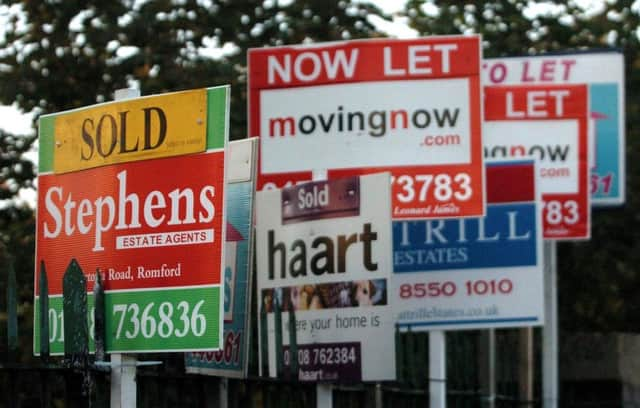Between the lines: Tax changes will deter buyers


However, while almost all of the comment has focused on the likely effects of the tax on the ordinary owner-occupier, the implications for the residential investment market north of the Border have barely received a mention.
So with less than a month before LBTT begins to operate (from midnight on 1 April), let me say loud and clear: the LBTT rates as set out by Mr Swinney will seriously stem the flow of foreign money into residential property in Scotland.
Advertisement
Hide AdAdvertisement
Hide AdI base this claim on an extensive working knowledge of high net worth individuals with residential investment interests in Scotland. I have also organised regular investment sales missions to the Middle and Far East over the past 25 years, during which I have been able to gauge a reasonably accurate summarisation of the hopes and fears of investors in this field.
My last trip was to Hong Kong in December, where I met a number of potential buyers among the Chinese and UK expatriate communities (Scots being particularly well represented among the latter).
And while, historically, they were aware that prime Edinburgh and Glasgow properties produced a good overall return in terms of income yield and capital growth (as well as being “safe” investments), their enthusiasm had been somewhat diluted by the proposed changes to the tax regime.
Chinese investors, for example, are not normally interested in anything under £500,000 and more probably will be looking at the £1 million-plus price bracket. At present, the tax on a £1m property transaction is £40,000 but from 1 April a transaction at this level will cost the purchaser £78,350, which is an increase close to 100 per cent.
But of greater significance is the difference, from 1 April of the tax rates between Scotland and England.
George Osborne’s new stamp duty rates for England and Wales have been more benign towards higher-value housing transactions.
Consequently, the tax on a £1m sale in England will be £43,750 – almost £35,000 less than in Scotland. Which flat is the foreign investor likely to buy – the one where the tax is £78,350 or the one where the tax is £43,750. Does it really take a genius to work it?
Paradoxically, this is about to happen just at a time when growing numbers of foreign investors have been starting to look at the English regions and Scotland as alternatives to London. Clearly the new tax rates will put Scotland at a distinct disadvantage.
Advertisement
Hide AdAdvertisement
Hide AdQuite distinct from the issue of LBTT, interest in Edinburgh and Glasgow properties among Chinese and UK expatriate investors has been subject to what I would describe as a “growing sense of unease about Scotland”, as a result of creeping legislation of the rental market by the Scottish government over recent years.
To be fair, some of the rental reforms enacted by Holyrood have been sensible and have proven good for the market. Allied to this, however, is a feeling that government interference is going too far and is becoming a disincentive to investment in Scotland.
Investment from outside the UK should be seen as a vote of confidence in the Scottish residential market, the benefits of which eventually filter down to everyone.
• David Alexander is managing director of DJ Alexander, the Edinburgh and Glasgow-based estate and letting agency business
SUBSCRIBE TO THE SCOTSMAN’S BUSINESS BRIEFING